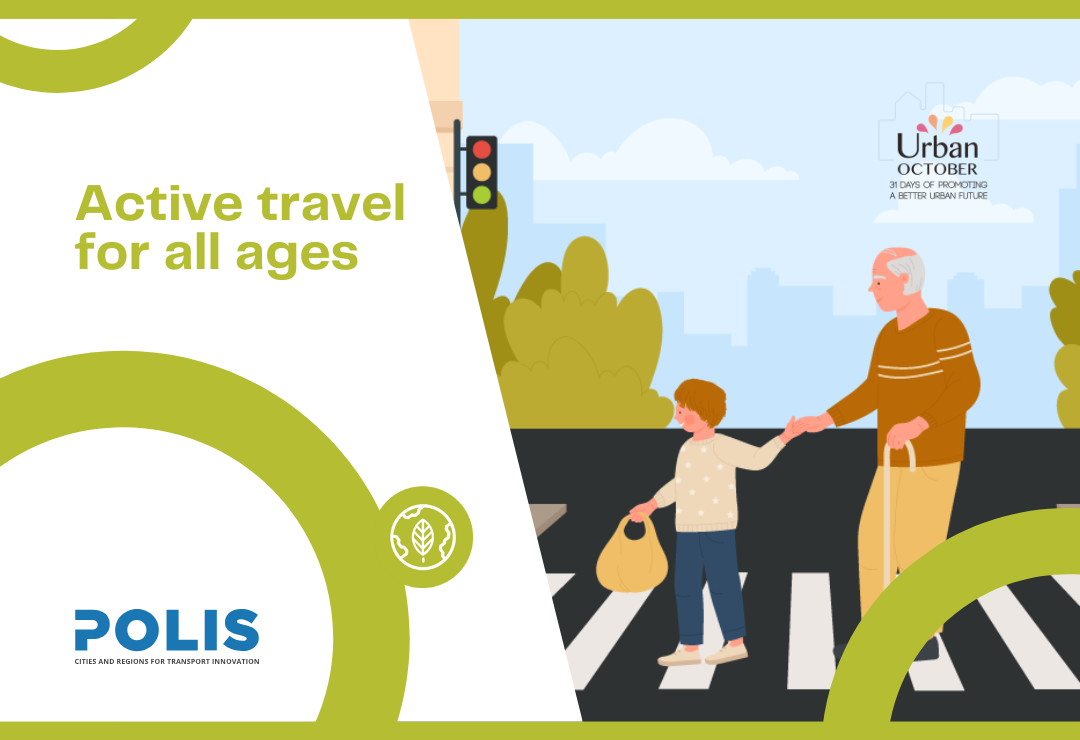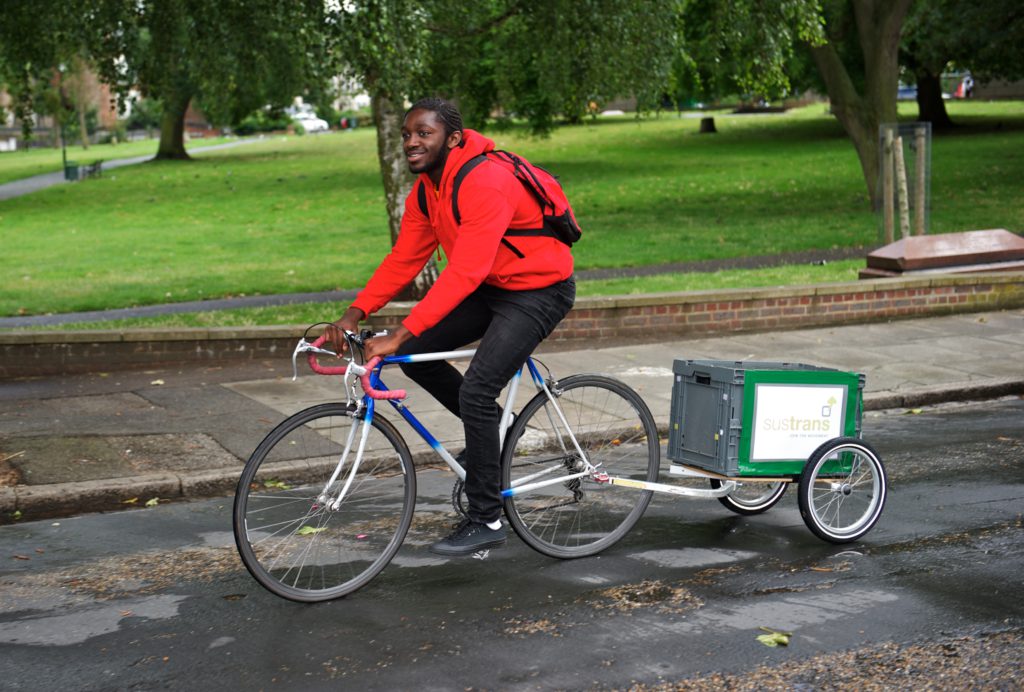Active travel for all ages: POLIS' Active Travel & Health Working Group dives in
As part of Urban October, the Active Travel & Health Working Group held a webinar to explore initiatives promoting active travel across generations, with an emphasis on the advantages of walking, bicycling, and wheeling for both young people and senior citizens. Find out more below.
That's right: in celebration of Urban October, a month this year dedicated to engaging youth to create a better urban future, the POLIS Active Travel & Health Working Group organised a webinar to shed light on active travel for all ages. On 23 October 2024, experts from across Europe shared their latest efforts to encourage active travel for both children and older adults, exploring the power of walking, wheeling, and cycling not only as essential means of transport but also as ways to boost well-being, independence, and social connectedness.
The presentations during the webinar highlighted innovative strategies for promoting active travel across different age groups, with a strong emphasis on inclusivity, safety, and tailored interventions to address barriers such as car-dominated infrastructure. For older adults, Sustrans' 'Best Foot Forward' report identified key motivators, such as maintaining independence, while highlighting obstacles like safety concerns and insufficient infrastructure. Age-friendly mobility initiatives, such as simplified routes, clearer signage, and inclusive cycle lane designs, were recommended to address these challenges. For instance, the 'Transport to Thrive' project demonstrated how policies accounting for socio-economic background, gender, and ethnicity could drive long-term behaviour change in this demographic.
For children and young people, Bicicultura and APSI Portugal schemes such as citywide bike-loaning programmes in schools and the School Bike Train were shared as ways to encourage sustainable travel habits from an early age. In one city, campaigns like Travel Friends and structured cycling tracks not only taught vital skills but also incentivised participation through rewards. Similarly, community-led projects to create safe, walkable routes have helped children navigate urban spaces more independently.
The overall message underscored the transformative impact of targeted policies and infrastructure upgrades. From guided cycling tours for young children to age-friendly transport solutions for older adults, these initiatives demonstrate how active travel can promote healthier, more connected cities for everyone.
Read the full report below or at this link.
To view the full webinar recording, click here.



